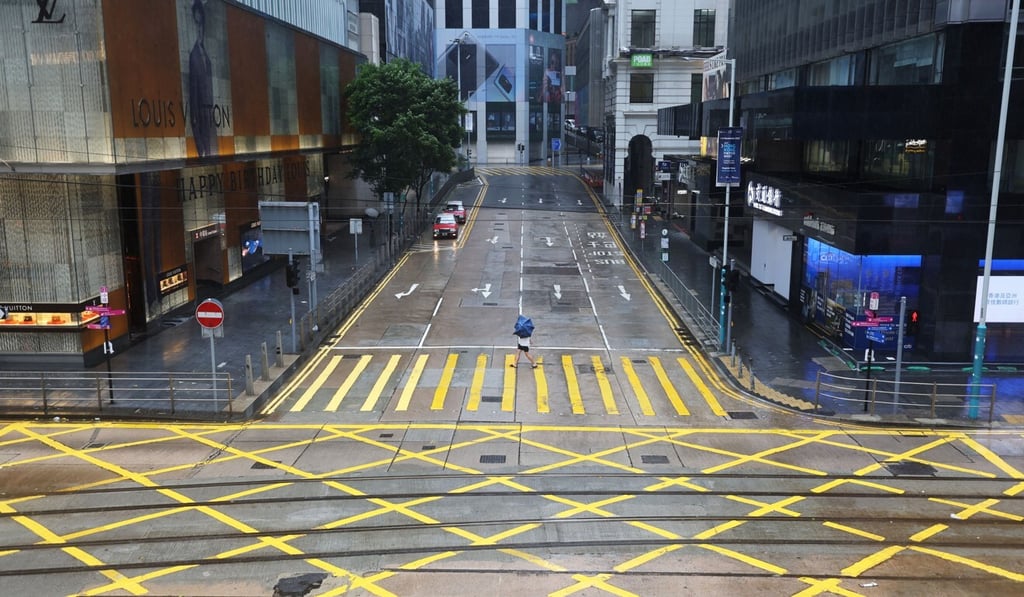Typhoon Kompasu to cost Hong Kong between HK$2 billion and HK$3 billion in economic losses
- Experts say actual economic loss caused by the typhoon is ‘very small’, particularly if compared with the impact of the coronavirus pandemic
- Loss in traders’ earnings estimated at about 1 per cent of daily HK$180 billion turnover, while food and beverage sector could be set back by more than HK$100 million

The lengthy disruption to business caused by Typhoon Kompasu will cost Hong Kong anywhere between HK$2 billion (US$257 million) and HK$3 billion, according to economists.
Chinese University associate professor of economics Terence Chong Tai-leung on Wednesday put the economic loss caused by Kompasu at about HK$3 billion, based on the average value of the gross domestic product (GDP) generated in one day, taking reference from last year’s overall GDP figure of about HK$2.7 trillion.
“Even if most businesses remain closed during the day, some economic activities are still going on. We can only estimate Hong Kong has lost a certain percentage of one day of GDP,” he said. “I’ll put the figure at about HK$3 billion.”

Kompasu – named after the Japanese word for compass – forced Hong Kong into shutdown mode on Wednesday. Schools and government services were suspended alongside trading on the stock market, while businesses remained closed, flights were cancelled and the race meeting called off.
The Hong Kong Observatory had issued the No 8 typhoon warning signal – the third-highest – at 5.20pm on Tuesday as Kompasu came within 500km of the city, threatening to unleash another round of the gale-force winds and torrential rain that Tropical Storm Lionrock brought last weekend.